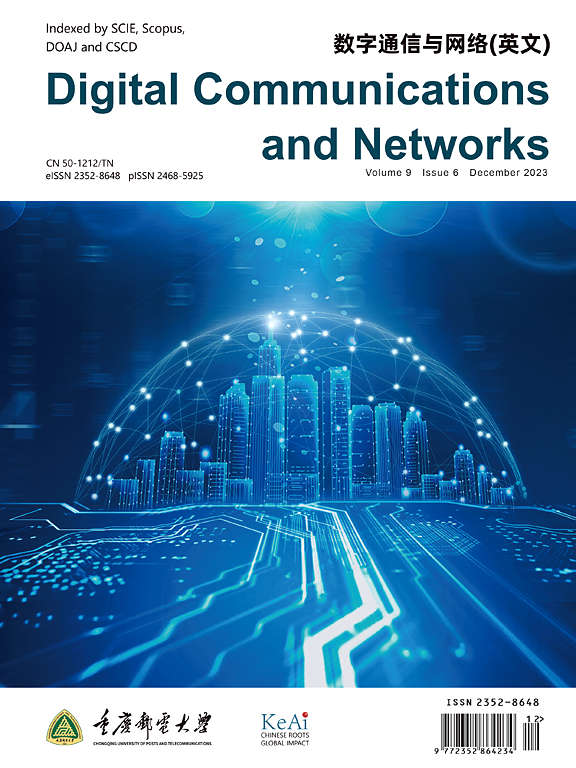边缘计算网络中的博弈论私有区块链设计
IF 7.5
2区 计算机科学
Q1 TELECOMMUNICATIONS
引用次数: 0
摘要
本文章由计算机程序翻译,如有差异,请以英文原文为准。
Game-theoretic private blockchain design in edge computing networks
Considering the privacy challenges of secure storage and controlled flow, there is an urgent need to realize a decentralized ecosystem of private blockchain for cyberspace. A collaboration dilemma arises when the participants are self-interested and lack feedback of complete information. Traditional blockchains have similar faults, such as trustlessness, single-factor consensus, and heavily distributed ledger, preventing them from adapting to the heterogeneous and resource-constrained Internet of Things. In this paper, we develop the game-theoretic design of a two-sided rating with complete information feedback to stimulate collaborations for private blockchain. The design consists of an evolution strategy of the decision-making network and a computing power network for continuously verifiable proofs. We formulate the optimum rating and resource scheduling problems as two-stage iterative games between participants and leaders. We theoretically prove that the Stackelberg equilibrium exists and the group evolution is stable. Then, we propose a multi-stage evolution consensus with feedback on a block-accounting workload for metadata survival. To continuously validate a block, the metadata of the optimum rating, privacy, and proofs are extracted to store on a lightweight blockchain. Moreover, to increase resource utilization, surplus computing power is scheduled flexibly to enhance security by degrees. Finally, the evaluation results show the validity and efficiency of our model, thereby solving the collaboration dilemma in the private blockchain.
求助全文
通过发布文献求助,成功后即可免费获取论文全文。
去求助
来源期刊

Digital Communications and Networks
Computer Science-Hardware and Architecture
CiteScore
12.80
自引率
5.10%
发文量
915
审稿时长
30 weeks
期刊介绍:
Digital Communications and Networks is a prestigious journal that emphasizes on communication systems and networks. We publish only top-notch original articles and authoritative reviews, which undergo rigorous peer-review. We are proud to announce that all our articles are fully Open Access and can be accessed on ScienceDirect. Our journal is recognized and indexed by eminent databases such as the Science Citation Index Expanded (SCIE) and Scopus.
In addition to regular articles, we may also consider exceptional conference papers that have been significantly expanded. Furthermore, we periodically release special issues that focus on specific aspects of the field.
In conclusion, Digital Communications and Networks is a leading journal that guarantees exceptional quality and accessibility for researchers and scholars in the field of communication systems and networks.
 求助内容:
求助内容: 应助结果提醒方式:
应助结果提醒方式:


